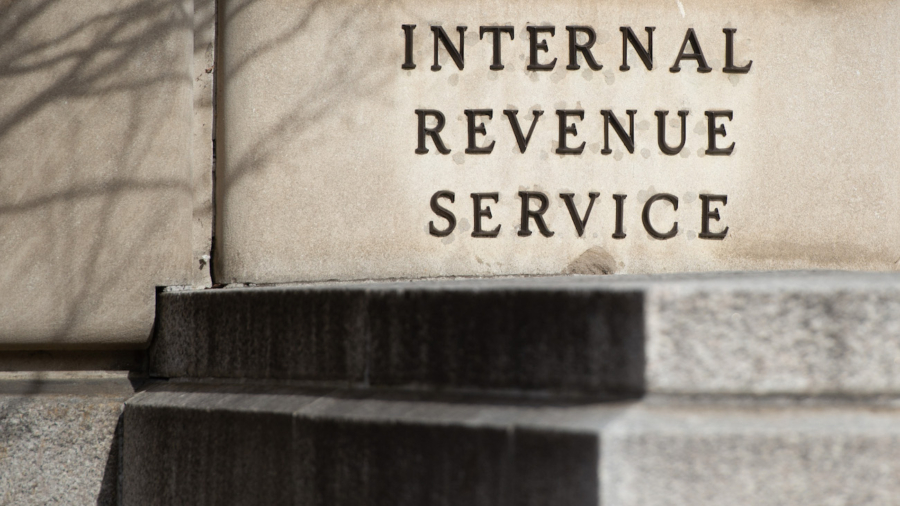The Internal Revenue Service (IRS) has at long last issued guidance about how to handle state stimulus payments, which comes about a week after it issued an alert advising millions of taxpayers to delay filing tax returns until it provides “additional clarification” about the payments’ taxability.
In a statement issued late Friday, the IRS said that most relief checks issued by states last year are not subject to federal taxes.
“The IRS has determined that in the interest of sound tax administration and other factors, taxpayers in many states will not need to report these payments on their 2022 tax returns,” the agency said in the statement.
All told, taxpayers in 17 states don’t have to report last year’s stimulus checks, while in another four states, many people will be able to avoid paying federal taxes on their relief payments if they meet certain requirements.
Details
The clarification comes about a week after the IRS told recipients that regarding such payments, they are advised to “wait until additional guidance is available or consult with a reputable tax professional” before filing their 2022 tax returns but that “the best course of action is to wait for additional clarification” from the IRS.
“The IRS appreciates the patience of taxpayers, tax professionals, software companies and state tax administrators as the IRS and Treasury worked to resolve this unique and complex situation,” the agency said in acknowledgment of the confusion its recommendation to delay filing may have caused.
With that clarification finally issued, it is now known that various forms of general welfare and disaster relief payments don’t have to be reported by taxpayers in the following 17 states: Alaska, California, Colorado, Connecticut, Delaware, Florida, Hawaii, Idaho, Illinois, Indiana, Maine, New Jersey, New Mexico, New York, Oregon, Pennsylvania, and Rhode Island.
“If a taxpayer does not include the amount of one of these payments in its 2022 income for federal income tax purposes, the IRS will not challenge the treatment of the 2022 payment as excludable for income on an original or amended return,” the agency said.
Additionally, the following four states are special cases in terms of stimulus check taxability because they issued relief payments in the form of refunds of state taxes paid: Georgia, Massachusetts, South Carolina, and Virginia.
Relief payments from these four states—which came in the form of tax refunds—can be excluded from income for federal tax purposes. But that’s only if the recipient either claimed the standard deduction or itemized their deductions yet did not receive a tax benefit. That would be the case, for instance, if the $10,000 tax deduction limit applied.
The IRS explained the delay in providing guidance on the matter by saying it was a “complex fact intensive inquiry” complicated by the circumstance of the pandemic emergency declaration, which ends in May 2023, making “this an issue only for the 2022 tax year.”
The agency’s release of the additional clarification came as the federal watchdog for the IRS faulted it for not providing the guidance faster.
“The impact of the delay in providing timely information and guidance is hard to overstate,” the Taxpayer Advocate Service (TAS), a federal agency within the IRS, said Thursday in a post.
“Giving taxpayers a choice between waiting to file their returns and receive their refunds or filing returns now that the IRS may later determine to be inaccurate is not acceptable.”
The watchdog said the situation was avoidable since the IRS had been aware of the tax issue around state stimulus payments for months.
Some lawmakers also faulted the IRS for the delayed guidance.
Troy Jackson, president of the Senate in Maine, which sent out a round of $850 pandemic relief checks last year to most residents, called the confusion caused by the IRS “harmful and irresponsible.”
New Feature to Get Tax Refunds Faster
In other filing season developments, the IRS recently announced a new feature that will let millions of taxpayers who file amended returns get their tax refund money faster.
For the first time, people who electronically file their Form 1040-X (Amended U.S Individual Income Tax Return) will have the option to receive their refund through direct deposit, instead of waiting for a paper check.
With approximately 3 million amended returns filed each year, this update will reduce processing time for amended returns and increase convenience for taxpayers, the IRS said Thursday.
“We always encourage direct deposit whenever possible. Getting tax refunds into taxpayers’ hands quickly without worry of a lost or stolen paper check just makes sense,” IRS Acting Commissioner Doug O’Donnell said in a statement.
Electronic filing cuts out mailing time while the direct deposit option means faster refunds.
Taxpayers still have the option to submit a paper version of Form 1040-X and receive a paper check. But the direct deposit feature is not available for amended returns submitted on paper.
Eligibility for Tax Credit
The IRS recently issued an advisory indicating that millions of Americans are eligible for a tax credit that last year averaged over $2,000.
The Earned Income Tax Credit (EITC), which was first approved by Congress in 1975, was paid out last year to some 31 million Americans, totaling around $64 billion.
But around 20 percent of eligible taxpayers didn’t claim the tax credit, the IRS said in a statement.
People especially prone to overlooking the tax credit include those living in nontraditional homes (such as a grandparent raising a grandchild), those whose earnings declined or whose marital or parental status changed, people living in rural areas, veterans, the self-employed, and those with earnings below the tax return filing requirement.
The EITC is considered a tax credit for lower-income filers, although there are a number of variations of income, filing status, and the number of dependents that have an impact on eligibility.
In order to navigate EITC eligibility, the IRS has a tool called the EITC Assistant that people can use to check if they qualify and how much they can expect to receive.
From The Epoch Times


